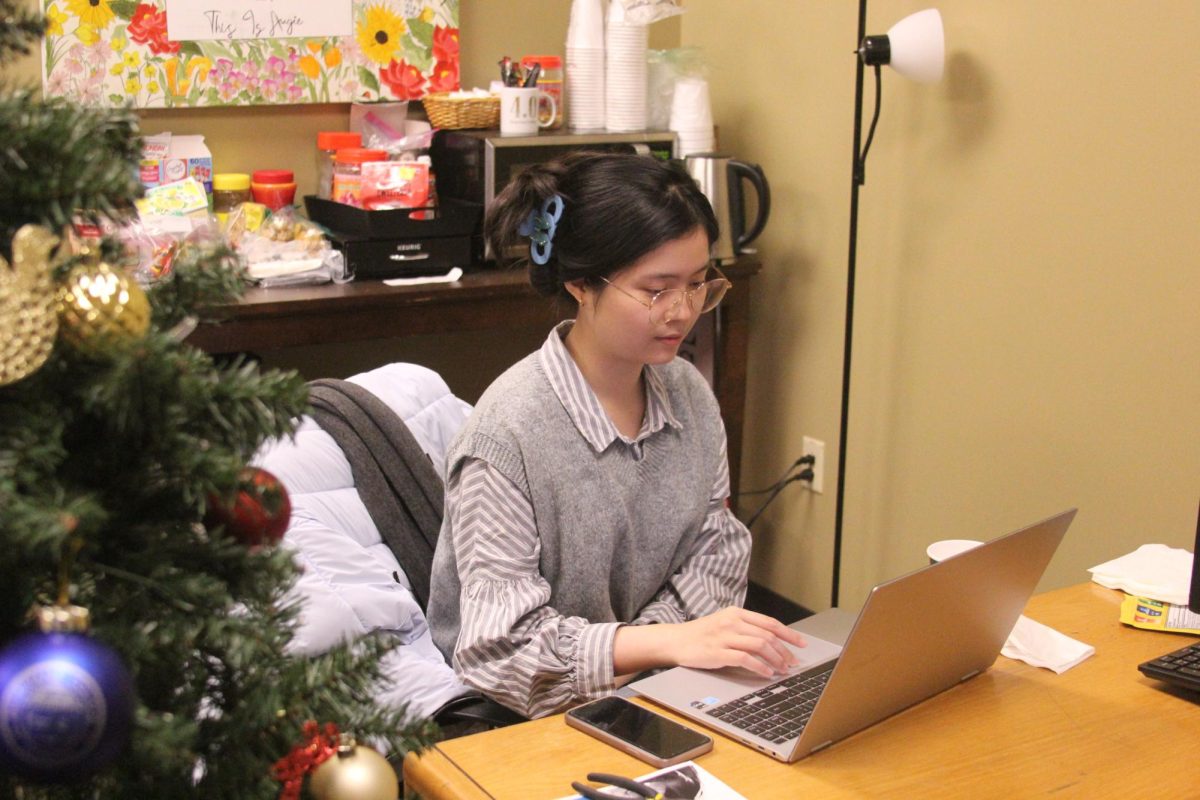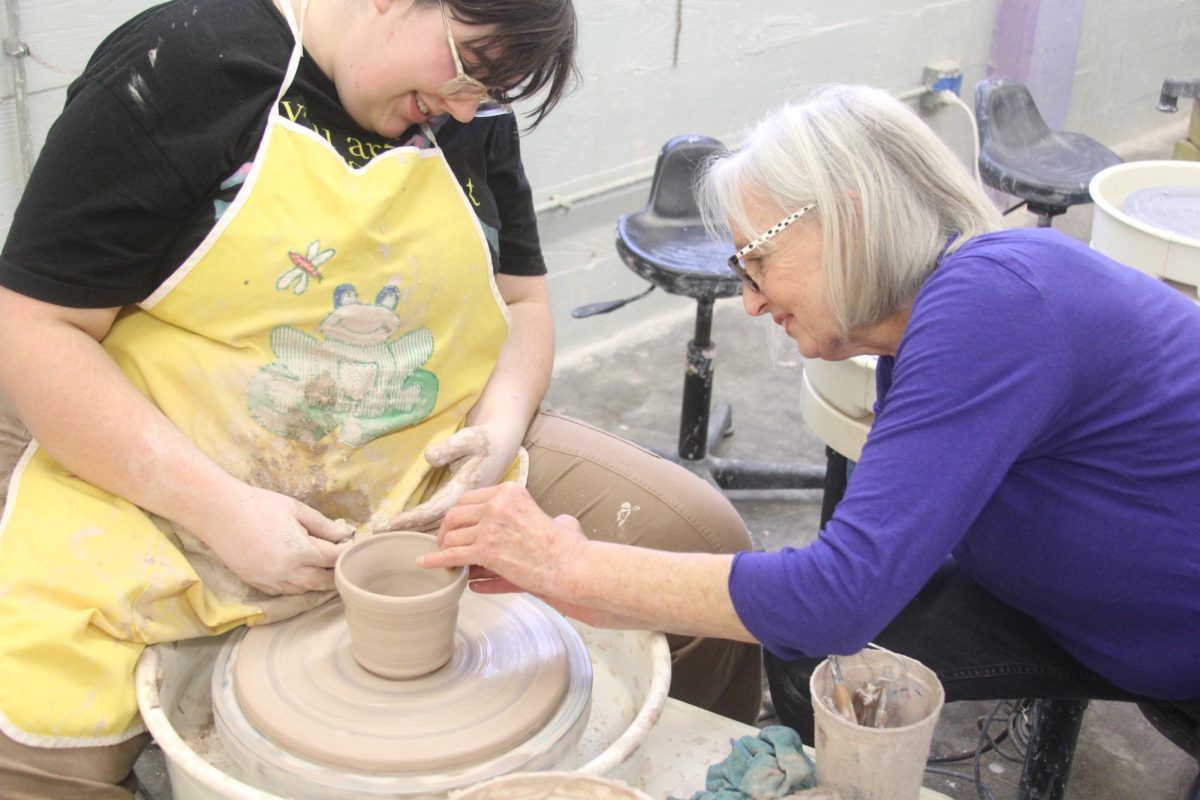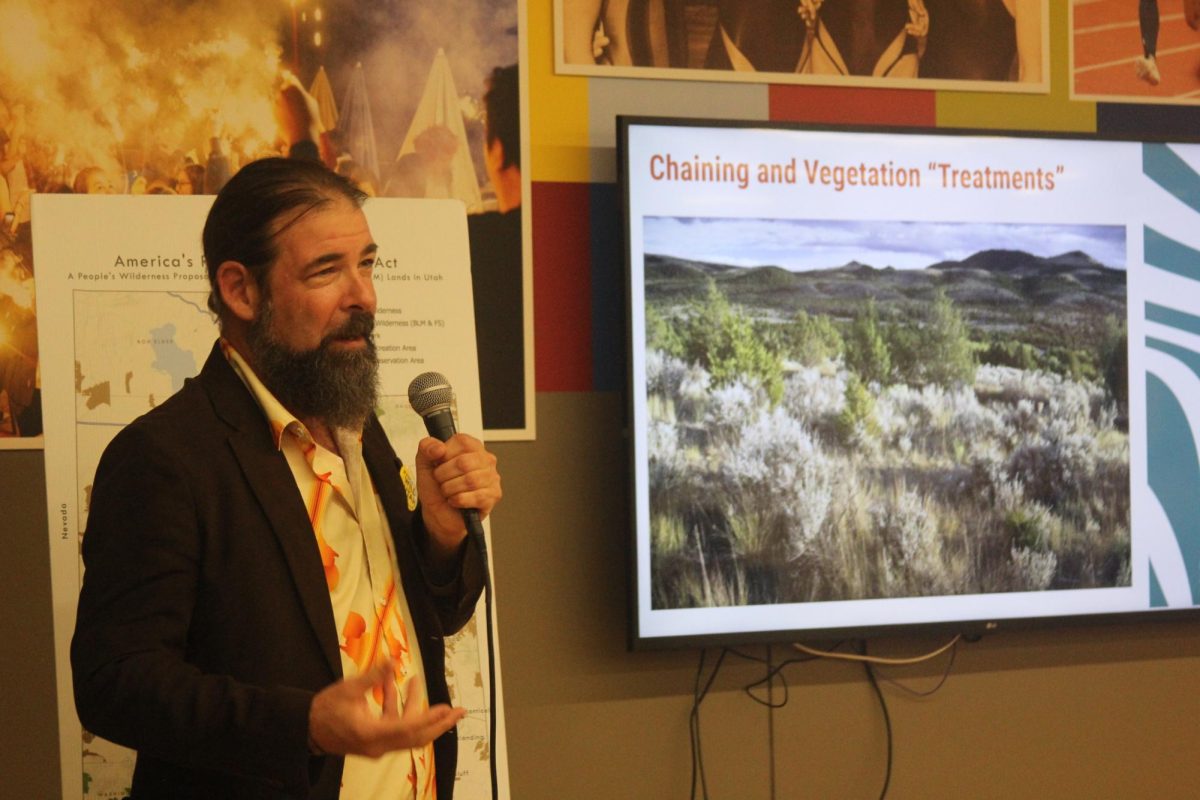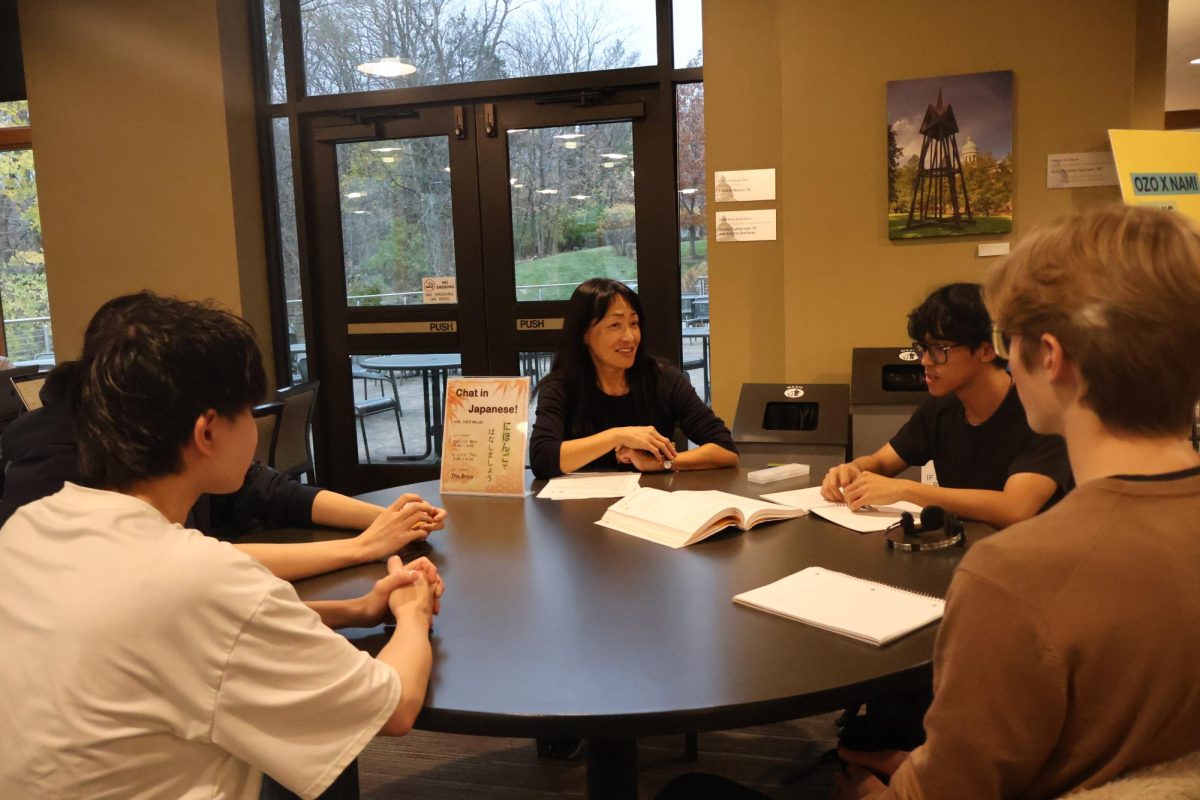Evald: Empowering women beyond the grave
November 11, 2022
“Power, Passion, and Faith,” a biography on Emmy Carlsson Evald written by her great-granddaughter Sharon Wymann, tells the life story of a young activist for women’s rights. On Wednesday Nov. 2, Wymann held a zoom meeting open to the public, educating listeners about Evald’s life and legacy.
Evald Hall, named after Emmy Carlsson Evald, is one of her many contributions to Augustana College and the world. She created the first ever women’s dormitory on campus, which is now known as Evald Hall. Her influence remains in many buildings all over the globe.
Emmy Carlsson Evald was born in 1857 in a poorer section of Chicago known as “Swede Town.” Her parents were both Swedish immigrants and part of the Lutheran denomination. After spending a few years in Sweden for additional education, she returned to the States to enroll in Rockford College.
Although she did not attend Augustana College, her father, Erland Carlsson, was a part of the Augustana Synod as well as one of the board chairs. This connection allowed young Evald to play a very important role in Augustana’s culture through both her religious and social views.
From an early age, Evald challenged traditional gender roles. She was determined to establish better representation for women, and she wasn’t afraid to work for it. Evald conducted and participated in peaceful protests, in one she marched with Susan B. Anthony.
Dr. Ann Boaden, former Augustana English professor, author of “Light and Leaven” and board member of the Augustana Historical Society, studies historical figures such as Evald and their influence.
“She was a force. She tore through her world like a whirlwind,” Boaden said. “Decades of absolutely impassioned action, vision and unrelenting pressure toward the goals that she had in mind.”
In 1892, Evald founded the Women’s Missionary Society, creating health centers and schools for women. They raised money and created locations all around the world, ranging from China to South Africa.
“Her energy for social justice and equity was poured into her creation of the Women’s Missionary Society,” Boaden said.
In the early 1920s, Augustana did not have any form of women’s dormitory or center, so Evald and her group decided to raise money in support of what was known as the “Woman’s Building.” Raising over $100,000, the dorm was built in the fall of 1928.
This building is now known as Evald Hall. But, it took some time before it received that name. The building remained a women’s dormitory until 1960, when the women were moved to a new and improved space. Then, it became a men’s hall named Carlsson Hall in honor of Evald’s father.
It was not until 2008 that the building was renamed Evald Hall in honor of Emmy Carlsson Evald.
Dr. Kai Swanson, special assistant to President Talentino and member of the Augustana Historical Society, said he is in awe of Evald’s powerful legacy. He believes that Augustana students can take a very important message away from her.
“It’s extraordinary to me to think of what kind of energy she had, and it was all for a mission and a purpose. It was to make life better for people she would never meet,” Swanson said.
Evald not only changed the lives of many women across the world, but her influence forever changed the culture of Augustana College. Her dream of equality and equity helped build Augustana’s foundational morals, as well as expand the college’s horizons across the globe. Evald fostered connections for past and present Augustana students to countries all over the world.
“She’s one of my heroes,” Swanson said.
After leading a fulfilled life full of empowering and helping others, Emmy Carlsson Evald is one of Augustana’s and the world’s heroes. So, the next time you are walking to class in Evald Hall, take a moment to remember Emmy.





































































































